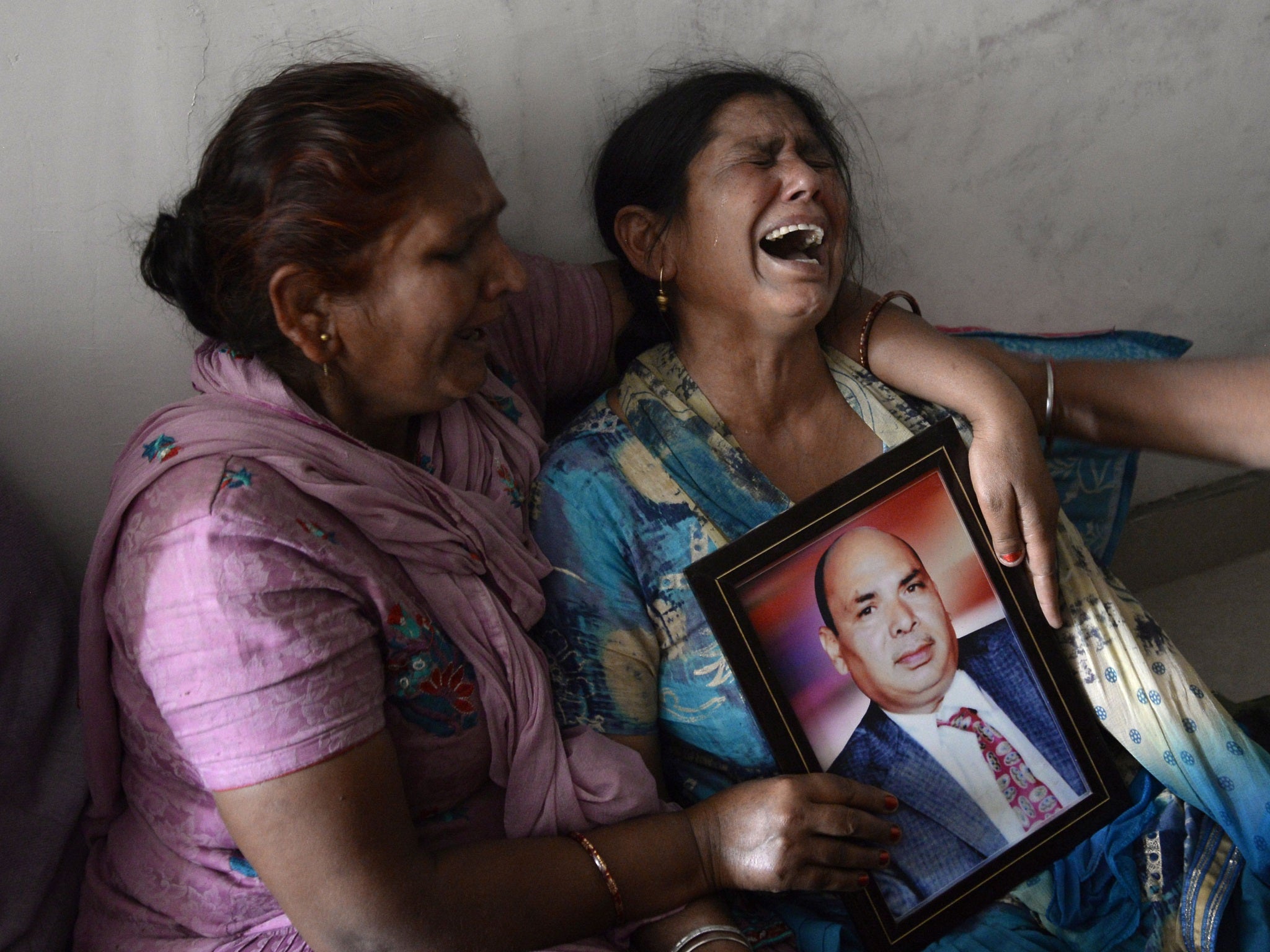Bodies of 39 Indian construction workers abducted by Isis found in mass grave in Iraq
'Their dignity was supposed to be protected, but the forces of evil wanted to defame the principles of Islam'

Your support helps us to tell the story
From reproductive rights to climate change to Big Tech, The Independent is on the ground when the story is developing. Whether it's investigating the financials of Elon Musk's pro-Trump PAC or producing our latest documentary, 'The A Word', which shines a light on the American women fighting for reproductive rights, we know how important it is to parse out the facts from the messaging.
At such a critical moment in US history, we need reporters on the ground. Your donation allows us to keep sending journalists to speak to both sides of the story.
The Independent is trusted by Americans across the entire political spectrum. And unlike many other quality news outlets, we choose not to lock Americans out of our reporting and analysis with paywalls. We believe quality journalism should be available to everyone, paid for by those who can afford it.
Your support makes all the difference.The bodies of 39 Indian construction workers abducted by Isis four years ago have been found in a mass grave in Iraq.
Taken in 2014 after the Islamic militants swept into Mosul, India's government had always maintained the workers were still alive.
Authorities from the country entered into negotiations to secure their release after the city was retaken by Iraqi forces last July.
They also sought help from the country's government to locate them.
But the bodies were found buried near the village of Badush, to the city's northwest.
The grave was close to where the construction company was operating when the militants first captured large tracts of northern Iraq.
India’s foreign minister Sushma Swaraj confirmed the deaths to her country's parliament. She said that DNA from 38 of the workers matched the bodies.
The 39th was also likely to have been found, with DNA at a 70 per cent match, she added.
Iraqi official Najiha Abdul-Amir al-Shimari called the killing a “heinous crime carried out by Daesh terrorist gangs." Daesh is the Arabic acronym for Isis.
The head of Iraq's Martyrs Establishment, a government body dealing with people killed in the fight against Isis, added that the men were “citizens of the friendly Indian state".
He said: "Their dignity was supposed to be protected, but the forces of evil wanted to defame the principles of Islam."
At the time of their capture, around 10,000 Indians were living and working in Iraq.
Relatives reported they had received panicked phone calls asking for help. One man escaped.
Since the territory was recaptured, dozens of mass graves have been discovered in Iraq, although the country's government has not yet exhumed them all due to lack of resources.
“It is indeed a moment of deep grief and sadness for us,” India's ambassador to Iraq, Pradeep Singh Rajpurohit, told reporters in Baghdad. “India strongly condemns terrorism in all forms and manifestations and stands in solidarity with the government and the people of Iraq in their fight against terrorism.”
He said the bodies will be sent back to India “in a couple of weeks or so.”
Harjit Masih, the only Indian survivor, has long said that the rest of the group had been killed. He said they had all been held for a number of days, then taken outside and ordered to kneel. Then the militants opened fire.
“They were killed in front of my eyes,” he told reporters from his village in north India village. He was shot in the thigh but managed to escape.
Iraq, which is in the midst of an economic crisis, is also struggling to rebuild after more than three years of gruelling war against the militants. The fight against IS has cost Iraq more than $1bn (£714m) in destroyed infrastructure, officials say.
AP contributed to this report
Join our commenting forum
Join thought-provoking conversations, follow other Independent readers and see their replies
Comments